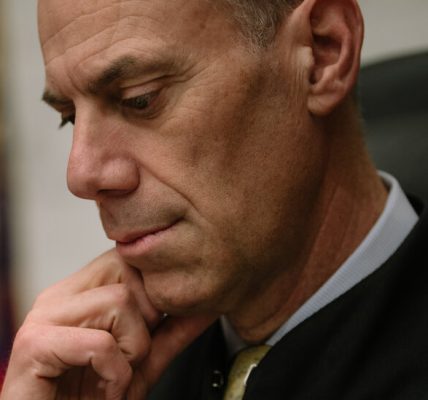Putting the UOCAVA in the Electorate: State and Federal Court Cases Against the 2020 Pennsylvania UOBVA Voting Process
“It’s a sort of ripe time for the intentional insertion of distrust and conspiracy theories and tearing down faith in our electoral process,” Boockvar said last week during a press briefing organized by Issue One, a democracy-focused advocacy group. “There’s so many protections in place. This is an important right for American citizens abroad and in the military. Adding this doubt and intentional fueling of distrust is just another example of exactly what we don’t need.”
The general election had more than 938,000 UOCAVA voters cast ballots. According to the Pennsylvania Department of State, the state sent more than 25,000 ballots to overseas voters for this fall’s election.
Lowering confidence in our free and fair elections is unacceptable, says Democratic Rep. Pat Ryan of New York, who served two tours as an intelligence officer in the U.S. Army.
In court filings for all three lawsuits, the Republican groups have asked the courts to at least order election officials to set aside the returned ballots of UOCAVA voters and not count them in the final election results until the voters’ eligibility can be confirmed.
The election workers are under public pressure to report accurate vote totals as quickly as possible, and election officials warn that a new process could cause confusion and disrupt the already-tense period.
UOCAVA voters can have their ballots received up to seven days after Election Day, notes Kathy Boockvar, who used to oversee elections in Pennsylvania as secretary of the commonwealth.
“This challenge appears to be a continuation of the unfounded litigation in state and federal court filed in 2020 in an effort to sow confusion and ultimately to throw out the votes of millions of Pennsylvanians and overturn the results of that legitimate election,” Heckel said. The previous dishonest efforts failed and these latest dishonest efforts will fail as well.
Matt Heckel, a representative for the State of Pennsylvania, compared the GOP lawmakers case to efforts during the previous presidential election.
The issues are not real, but are created to cause outrage, and that is how it is right now, says a constitutional law professor who has served as a Justice Department official and in the Biden administration.
With Absentee Voting underway, election officials and voting experts are concerned that legal challenges may discourage eligible voters from casting ballots and cast doubt on the upcoming results.
The Michigan judge and Pennsylvania case’s federal judge both held hearings last week. There is a hearing scheduled for Monday.
Legal experts don’t believe the cases will go anywhere. They point to procedural problems as the main reason for legal arguments.
The North Carolina Supreme Court argues that the ruling against overseas voters is based on a federally mandated voter’s birth consent law
Angela Benander, a spokesperson for the Michigan Department of State, noted that among the citizens whose voting rights the RNC is “targeting” are the “children of active-duty military service members who are making sacrifices for our freedoms.”
In the North Carolina case, the RNC made a similar argument against state election rules that allow absentee voting by citizens who were born outside the U.S. and whose parent or legal guardian’s former residence is in the state.
The states that are named in the lawsuits say that these rules have been in place for a long time to help minimize barriers that can prevent citizens from exercising their right to vote.
The RNC argued that overseas voters who do not meet requirements to be a state resident are ineligible for the election.
That law, however, specifically exempts overseas voters from having to provide a document proving their identity. If you want to vote overseas, you have to provide your driver’s license number or last four digits of your Social Security number. neither so that a state can assign them a unique ID number. The federal law does not allow the states to determine if the information is sufficient according to their laws.
Republicans have filed lawsuits in the last few weeks before Election Day to challenge the validity of votes cast by citizens of the U.S.
Even if these lawsuits are ultimately tossed out of the courts, Lang of the Campaign Legal Center is concerned about the costs of this controversy on eligible voters living abroad.
Smith noted that the election rule the RNC is challenging “has been on the books at least since 2011 as a bill adopted with bi-partisan support,” adding that both sides of this lawsuit “have been involved in elections under the existing statute since its passage without complaint.”
State and Local Laws Preventing Citizens Absentee Voting in Michigan, a Comment on a State Manual for Election Officials
For years, Michigan has allowed eligible uniformed service members and other citizens living outside the U.S. to vote in federal elections, as required by a federal law known as the Uniformed and Overseas Citizens Absentee Voting Act. Guidance issued by Michigan’s secretary of state says: “A United States citizen who has never resided in the United States but who has a parent, legal guardian, or spouse who was last domiciled in Michigan is eligible to vote in Michigan as long as the citizen has not registered or voted in another state.”
Patel, however, concluded that the guidance language in the secretary of state’s manual for election officials is “consistent with federal and state law, and the Michigan Constitution.”
Many legal experts say these cases are also not likely to go anywhere in part because they were filed after officials started sending out ballots to overseas voters.

